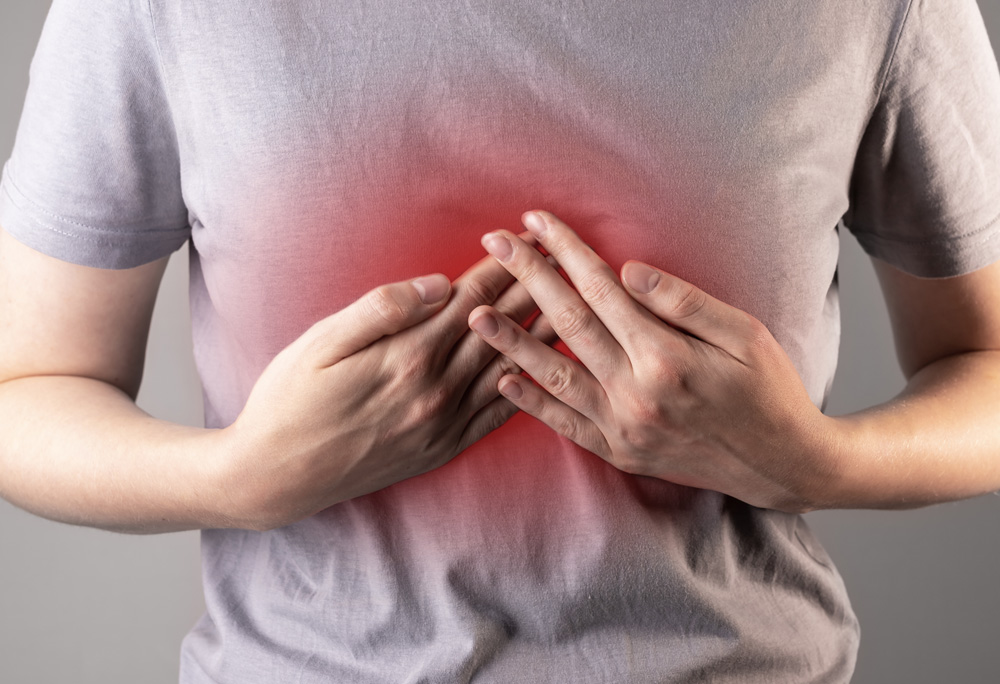Heart Palpitations
Heart palpitations occur due to physiological or pathological causes. Therefore, you should check the cause of heart palpitations regularly, and appropriate treatment options should be evaluated. If the palpitations are persistent or severe and affect the person's life, it is imperative to seek emergency medical care.
What are Heart Palpitations?
Heart palpitations are when a person's heart beats at an abnormal rate or in a different rhythm. This may be due to the heart beating faster or slower than normal. It can be seen with symptoms such as shortness of breath, palpitations, chest pain, and fainting.
What Causes Heart Palpitations?
The answer to the question of what causes heart palpitations varies. Conditions that cause palpitations are as follows:
- Fever
- High alcohol consumption
- Hyperthyroidism
- Heart attack
- High caffeine consumption
- High blood pressure (hypertension) or low blood pressure (hypotension)
- Use of illegal substances such as cocaine and methamphetamine
- Imbalance of electrolyte levels such as sodium, potassium, calcium and magnesium in the blood
- Cardiac insufficiency
- Side effects of some drugs
- Anemia
- Stress
How to Diagnose Heart Palpitations?
The following methods are used for the diagnosis of heart palpitations:
- Physical examination: The doctor tries to detect the presence of heart palpitations by listening to the heart rate, rhythm and sounds.
- EKG: It measures the electrical activity of the heart.
- Coronary angiography: It provides visualization of the heart vessels.
- Holter monitor: It is used to monitor heart palpitations in the person's daily life.
- Echocardiography: Uses ultrasound to take an image of the heart.
What Are the Symptoms of Heart Palpitations?
Symptoms of heart palpitations vary. Common symptoms are as follows:
- Early Fatigue
- Sweating
- Shortness of breath
- Angina pectoris
- Slow Heartbeat
- Fainting
- Pain on the left side of the chest
- Nausea
What Are the Types of Heart Palpitations?
Palpitation is a condition that disrupts or accelerates the normal rhythm of the heart. It can occur due to various reasons. That's why there are different types:
- Sinus arrhythmia
- Sinus tachycardia
- Atrial fibrillation
- Ventricular tachycardias
- Extrasystoles
What Are the Risk Factors for Heart Palpitations?
The risk factors for heart palpitations are as follows:
- Age
- Sedentary lifestyle
- Family history of arrhythmia
- Drugs use
- Stress
- Smoking
- High blood pressure (hypertension)
- Excessive alcohol consumption
- Diabetes
- Obesity
- Men have a higher risk.
How are Heart Palpitations Treated?
Treatment of heart palpitations varies according to the person's condition and the cause of the disease. In general, the aim is to correct the heart rhythm or to eliminate the causes.
The methods used in the treatment are as follows:
- Drug therapy
- Electroshock
- Ablation
- Lifestyle changes
- Treatment of the underlying disorder
What is the Symptom Difference Between Heart Palpitations and Heart Attack?
Heart palpitations and heart attacks are two different conditions related to heart health. However, there are similarities between their symptoms.
Palpitation is when the patient feels a heartbeat. A heart attack is an event that causes occlusion of the heart vessels and damage to the heart, resulting in a fall, fainting, or sudden death. In addition, a heart attack often causes pain that stops you from moving.
Frequently Asked Questions
-
Palpitations are dangerous and require immediate medical attention, especially in the following situations:
- Dizziness or fainting
- Persistent or prolonged palpitations
- Shortness of breath
- Chest pain accompanying palpitations
-
Symptoms of palpitations include rapid and irregular heartbeat, shortness of breath, chest pain, dizziness, and also fainting. Tests such as physical examination and electrocardiography (ECG) are performed to confirm the presence of palpitations.
-
Symptoms of palpitations can be seen with an ECG. However, the ECG may not be sufficient to determine the cause of the palpitations. Therefore, other tests and examinations may be necessary to determine the cause of palpitations.
-
Palpitations that occur while falling asleep may occur due to the change in hormone levels in the body during sleep. In addition, listening to oneself in a quiet environment or lying on the left side can also cause palpitations.
-
In particular, factors such as decreased cortisol (stress hormone) levels in the body while falling asleep, increased renin hormone secreted by the kidneys, and reduced heart rate can cause heart palpitations.
-
Among the causes of heart palpitations during sleep, the person's irregular diet, lack of exercise or side effects of the drugs he uses, and excessive caffeine consumption can be counted as factors.
-
Childhood heart diseases are rare. But in some cases, children can also show signs of heart palpitations. Causes of heart palpitations in childhood can include health problems such as:
- Cardiac anatomy disorders
- Heart muscle diseases
- Anemia
- Hypertension
- Heart failure
- Endocrine disorders
- Infections
- Sleep apnea syndrome


